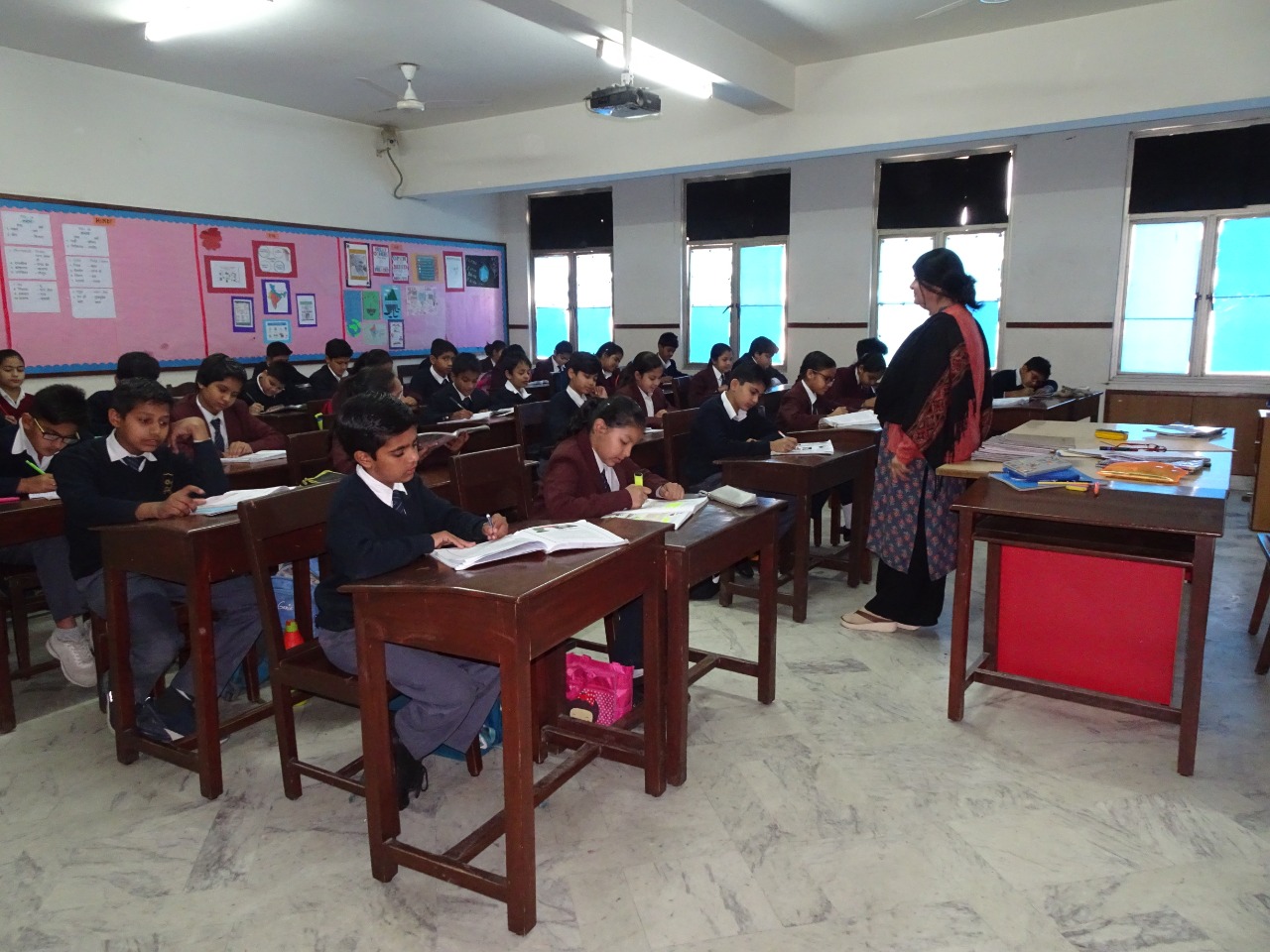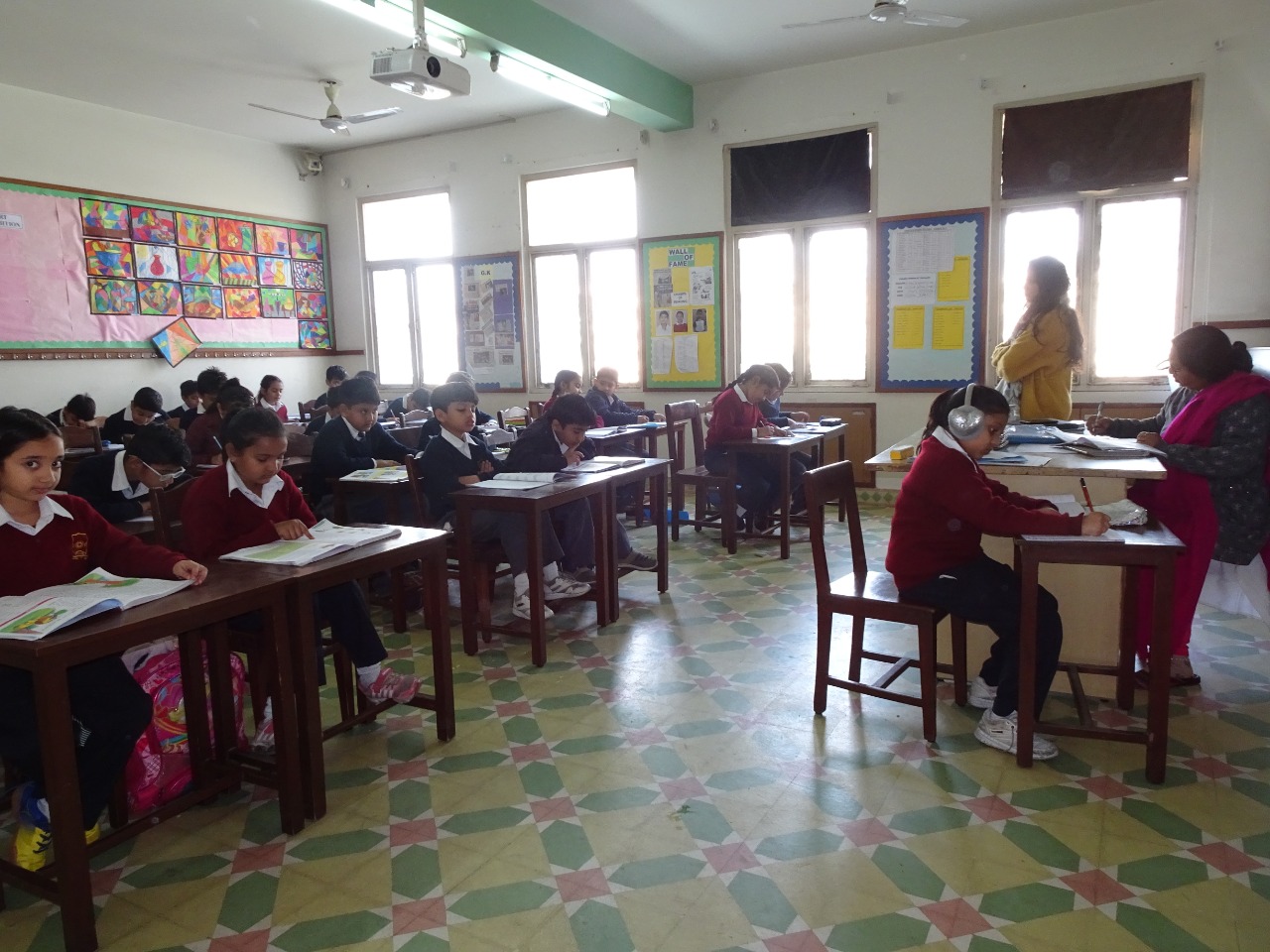The Middle School curriculum addresses the unique learning styles of young students at a crucial stage in their development. It provides a transition from the protective, guided environment of the primary towards an independent approach designed for the needs of Middle Grade Scholars.
The Middle School works to provide a balance between attention to basics and equipping them with necessary skills and knowledge. At this stage students are given opportunities to explore a wide variety of interests and experiences. The curriculum is based on a core of courses in English, Hindi, Mathematics, Social Studies, Science, third language (French or Sanskrit), Computers and the Visual art with an emphasis on co curricular fields of dance, music and Sports to develop and groom a child academically as well as aesthetically.
The school offers students the flexibility of making a vocational choice of Artificial Intelligence ,
Coding, Financial Literacy and Design Thinking for Grade VI & VII. It also offers courses on Life cycle of medicine and vaccine and Things you should know about keeping medicines at home for Grade VI and For Grade VIII -Artificial Intelligence, Coding, Financial Literacy ,Data Science and Design Thinking.
The teaching methodology aims to enhance cognitive as well as higher order thinking skills. Evaluation is both continuous and comprehensive which clearly reflects the progress of the child.
The Middle School English language programme stresses the basic skills of reading, writing, spelling, grammar and vocabulary, as well as creative writing and an appreciation of literature. Students are led to read independently and write in various literary formats as well as imbibe fluency in communication. Hindi is taught as the second compulsory language up till Grade VIII. Students are given a choice from amongst Sanskrit and French as the third language from Grade VI along with English and Hindi.
The Social Sciences programme strives to familiarize students with the tools, vocabulary, and skills of the social scientist. It aims to make students aware of different ideas and cultures around the world, past and present with lessons across History, Geography and Civics.
In Mathematics, students develop concepts of number, geometry, measurement, algebraic computation and problem solving. The goal is for students to calculate accurately and to be able to apply their knowledge in real life situations.
The Sciences provide the basic skills of scientific methodology and increased understanding of the world around them.
Computer curriculum at this stage enables them to stay at par with technological advancements as well as use it as tool to enhance their learning in all areas



